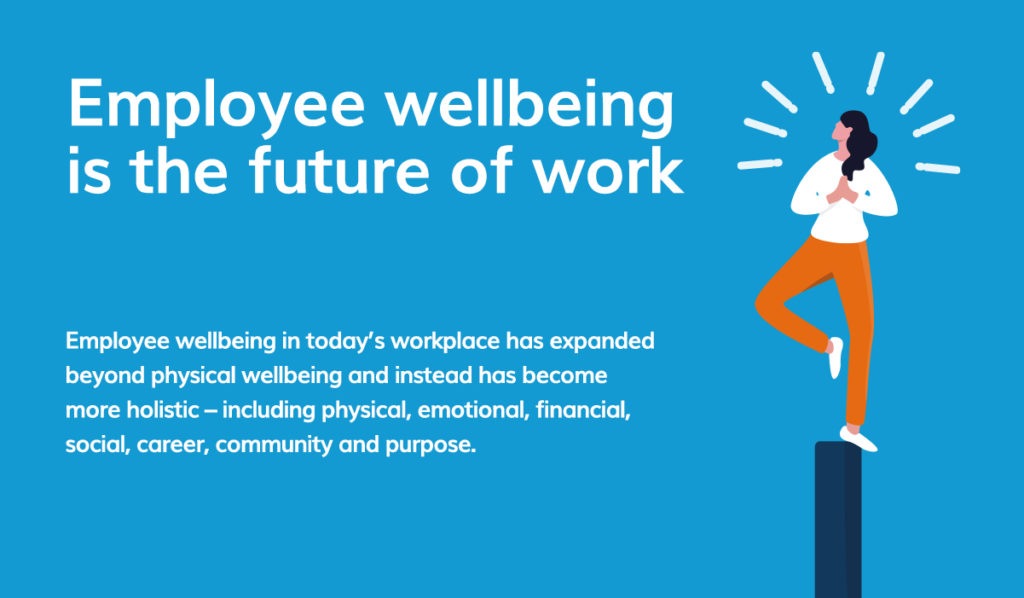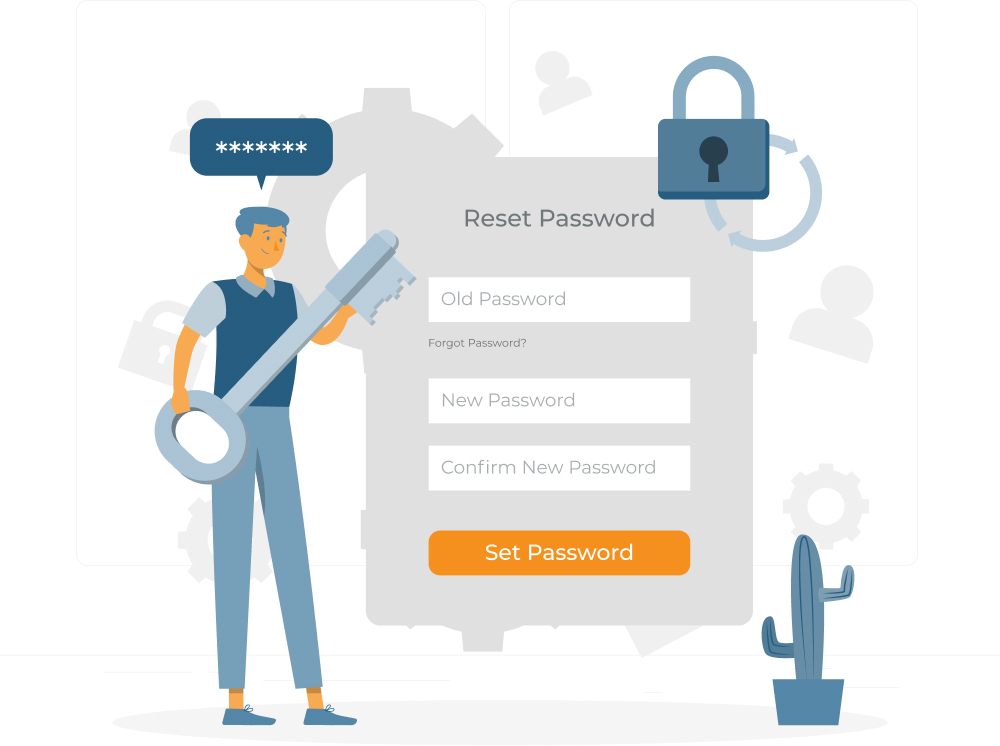A radical shift of the workplace as we know it has had HR professionals recognising the importance of investing in their employees’ wellbeing and mental health. This not only improves the individuals’ wellbeing but also the general working environment.
A 2021 survey by Future Workplace indicated that 68% of senior HR leaders rated employee well-being and mental health as a top priority. Employee wellbeing in today’s workplace has expanded beyond physical wellbeing and instead has become more holistic – including physical, emotional, financial, social, career, community and purpose.
 More than physical
More than physical
Less than a decade ago, a growing number of corporations were looking to make physical wellness a priority for their employees perhaps through yoga sessions, corporate activity challenges and even healthy food options in canteens and office kitchens. Today, physical wellness incorporates much more. Forward-thinking companies are looking into how they can improve and maintain their employees’ wellbeing through daily habits. PwC’s programme – Be Well, Work Well Habit Bank identifies a range of habits to improve one’s physical wellbeing such as – not skipping lunch (block your lunch hour in your calendar!), staying hydrated, being mindful of your food choices and several other tips. Companies are gearing up to be more proactive in assisting their workers to be healthier.
Rethinking talent-retainment
In view of the Great Resignation that has ensued during and post-pandemic, it is no surprise that a growing number of workers are reconsidering their career path and goals. If they are not considering a job change, many may be re-thinking what they want out of their job moving forward. A talent migration is being driven by many more individuals preferring to work remotely, searching for an improved work-life balance and a better salary and benefit package. It is only natural that companies are responding to this through revised talent-retaining policies via learning and development programs, increased compensation as well as online coaching.
Finances continue to be a top cause of employee stress above their job, their health and their relationships combined. A 2021 PwC Employee Financial Wellbeing survey found this to be a top concern for employees. In some cases this is even a distraction at work, and they are more likely to search for a new employer they believe cares more about their financial well-being than their current employer. Be proactive with worker raises, bonuses and performance reviews – show them you care, don’t let your employees have to come to you first! That is one way to demonstrate they are respected and appreciated for their work and results.
Informal settings encourage friendships
Social wellbeing is another aspect of an employee’s overall health. Organising a walking meeting is one way to encourage more informal meetings – allowing participants to integrate some movement into their day while also being productive. Steve Jobs is known to have been a fan of the walking meeting. Make it a point to organise one walking meeting per week and encourage your employees to do the same. For remote employees, encourage them to move away from their desks whilst on calls. Setting up activities that push them to get to know each other better informally will help break the ice and diffuse any tension.
Of course, you cannot force employees to meet outside work hours but scheduling time for informal meetings and activities, even unrelated to the office, will help the office with forming authentic friendships between co-workers which will help ensure the workplace runs smoothly in the long run. Friends provide trusted sounding boards for new ideas, increase engagement and belonging and encourage productivity overall. Scheduling time for employees to bond will prove beneficial to employee wellbeing and may prove to be key in employee and talent retention.
Office space and mental health
Another aspect of employee wellbeing which is finally being given its due importance in recent years, is mental wellbeing. Improving employee mental health could be by doing even simple things such as adding plants to the office to setting up strictly confidential counselling sessions for your employees. An office space with at least some outdoor space is also a way to lower employee anxiety and stress, when the going gets tough and a breath of fresh air is required. Efforts should be made to take deliberate actions in destigmatising mental health issues and introduce company-wide initiatives for inclusion, flexibility, acceptance and empathy.
Reactivity is not enough
Companies that push for their employees’ overall wellbeing will become leaders in their respective industries and will definitely see a substantial improvement in employee retention and productivity. Being proactive about it, rather than reactive is a sure fire way to keep your employees engaged and positive about their work environment. It is a win-win for all.

